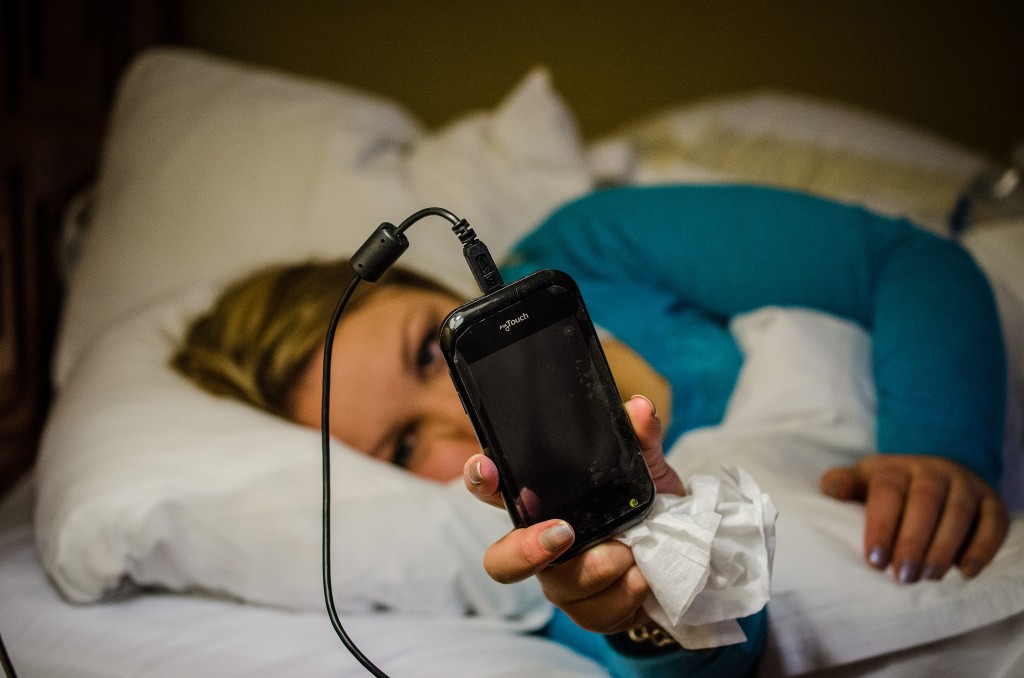How many times do we check our smartphones or tablet in a day? How often does a Facebook or Twitter notification distract our attention from what we were doing? Anyone of us knows well how much social networks are an almost indispensable part of our daily living. However, continuously checking social media (SM) throughout the day may have adverse consequences on our health. A new study found evidence showing that adults who are very active on social media have an increased chance of suffering from sleep disturbances than those who only use them sparingly. So maybe putting that smartphone away is really a sound idea.
The number of people that use every day some kind of social network is steadily increased. Today two-thirds of the US adults use them: a percentage that reaches 90% if we look to just those who are 18-29 years old. The study, which was recently published in the journal Preventive Medicine, was performed at the University of Pittsburgh School of Medicine in Pennsylvania with the support of the National Institutes of Health (NIH). A total of 1,788 adults aged 19-32 was examined, and all of them used some form of social media for an average time of 61 minutes per day, visiting their own account about 30 times each week. Lead author Jessica C. Levenson, Ph.D., from the university’s Department of Psychiatry, wrote a questionnaire with her colleagues, in order to define how deep was each participant’s involvement with the various social media platforms, and to measure their sleep quality. Roughly 30% of the participants suffered from high levels of sleep disturbances.

The results of the study
The survey found that the 11 most popular platforms used by participants through 2014 were: Facebook, YouTube, Twitter, Google Plus, Instagram, Snapchat, Reddit, Tumblr, Pinterest, Vine and LinkedIn. All those who checked their SM accounts more than the average showed a 3-fold increase in sleep disturbance quantity. This chance was further doubled if that participant spent more time than average on social medias. On the other hand, those who checked their SM accounts less than the average showed similarly reduced chances of suffering from sleep disturbances. No other studies ever associated the use of social media with sleep disorders before, as this young adults generation can be safely considered as the first one growing up with SM.
The researchers’ opinion on the study’s results is that the effects caused by checking social media platforms too often are more detrimental to sleep quality than those exerted by just prolonged use. Obsessive checking may be the reason behind the reduction of sleep quality, although researchers suggest caution before a definitive answer can be given. Difficulties in sleeping may, in fact, be the cause that led these people to increase their use of SM, triggering a vicious circle that further reduces their sleep quality as additional stimulation prevents them from sleeping well.
Researchers concluded their study by describing how the “strong association between SM use and sleep disturbance has important clinical implications for the health and well-being of young adults. Future work should aim to assess directionality and to better understand the influence of contextual factors associated with SM use.”
Article by Dr. Claudio Butticè, PharmD.
REFERENCES
Jessica C. Levenson et al. The association between social media use and sleep disturbance among young adults. Preventive Medicine, doi:10.1016/j.ypmed.2016.01.001, published online January 2016
Ellis, Marie. “Put the smartphone down: social media use and sleep disturbances linked.” Medical News Today. MediLexicon, Intl., 27 Jan. 2016. Web.
Be the first to comment on "Social Media abuse can damage your sleep"